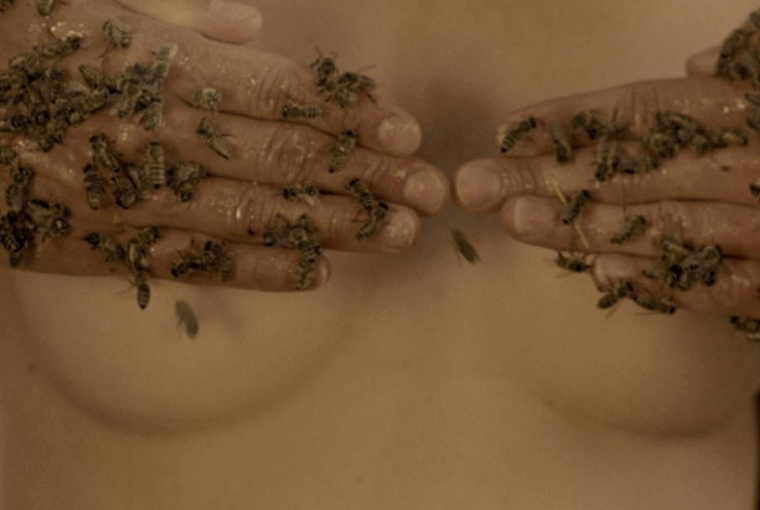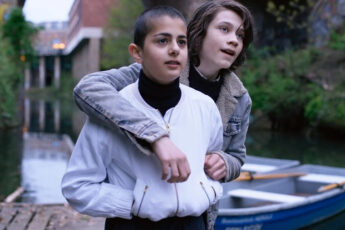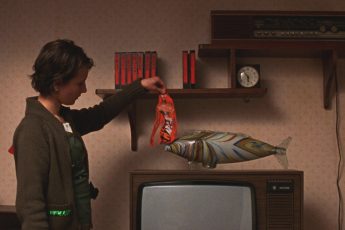
What do we think of when we hear “climate change”? A Norwegian study1 found two groups of respondents: while older people typically claim to associate climate change with physical manifestations like melting, and weather changes – having learned about climate change in the 1980s when the melting of ice sheets was first brought to popular attention -, younger generations tend to focus on the impact on human settlements, and the supply of food and water.
Understanding the way the public views important topics helps lobbyists to motivate people to change. But with climate change, the issue is so large and the information is so scattered that it’s often hard to keep up with what the public opinion is.
With his new film, starring Udo Kier as a disapproving father/autocrat who tries to sabotage his daughter’s efforts to save the bees, Giulia Nemes has managed to make climate change seem at once urgent and sexy without being too pedagogical about it. Starting from the premise that “if bees disappeared off the face of the earth, humankind would only have four years left to live,” the film catapults us into a dystopic reality which feels at once distant and worryingly real.
In Africa, a white man is looking for bees. He rides around on the back seat of someone’s scooter, stopping every now and then to ask people if they’ve seen any. One wide-eyed woman mentions a wise man who knows where to find them. He goes to visit the sage who speaks of a tree which has been protected by spells from the ravages of humankind… But soon we are plunged into another reality where a white-coated scientist ecstatically falls in love with a bee when he tastes the honey it produces.
What’s nice about this film is the kaleidoscopic way it switches between registers, constantly surprising the viewer. The film features Hungarian actors Krisztian Kovacs and Martina Kratka as heroic young eco-terrorists who are willing to put their relationships and lives at risk for the sake of the future. They are eventually drawn into a kind of post-apocalyptic war against capitalism. The drawn-out scenes where they’re happy sharply contrast with those to follow, in which the bees have disappeared: they cover their naked bodies in honey and make love with each other and, by extension, with the hundreds of bees which cover their honey-covered bodies. As rays from above light up their fervent bodies, which are steeped in the freedom of the swarm, one could be excused for thinking that the couple is involved in a promotional campaign for ‘natural products’.
Supported by the Hungarian National Film Fund, the Czech Cinematography Fund and the Mitteldeutsche Medienförderung, a regional fund from Germany, this controversial and highly political film was relatively lucky to secure funding. In one scene the eco-soldiers destroy watermelons which have images of political leaders glued onto them, including Angela Merkel, Vladimir Putin, Silvio Berlusconi and Nicolas Sarkozy. The director’s home country, Hungary, reportedly threatened to withdraw funds unless the image of prime minister Viktor Orban was removed from the film.
In the Norwegian study on climate change, Mike Hulme is quoted as saying that “ctizens’ opinions are crucial for action on climate change, but are, owing to the complexity of the issue, diverse and potentially unformed”2. The confused style of the film reflects this complexity. The calamitous ending, when we see people fighting for the remaining water and food, contrasts with the beginning, which showed the idyllic, natural calm of the beekeepers. The film makes a parallel between this opposition and the difference between doing nothing and taking ecological action.




Leave a Comment